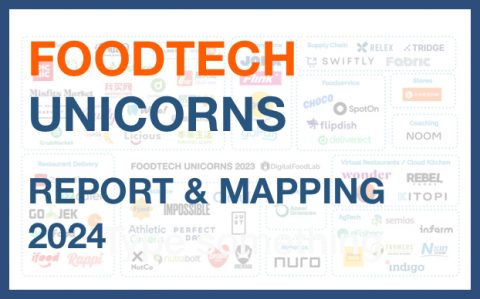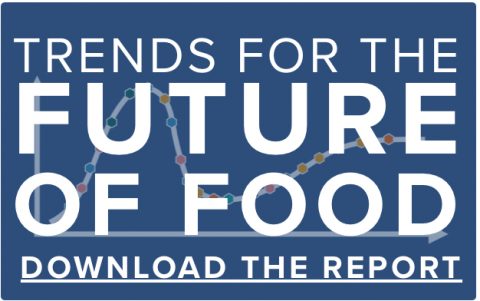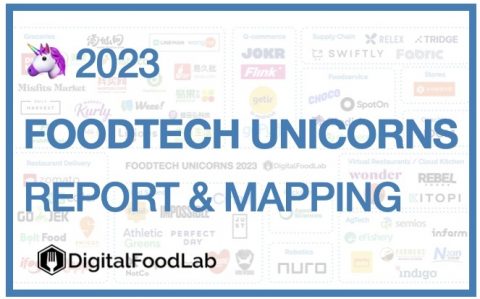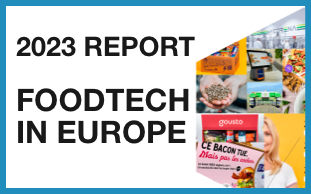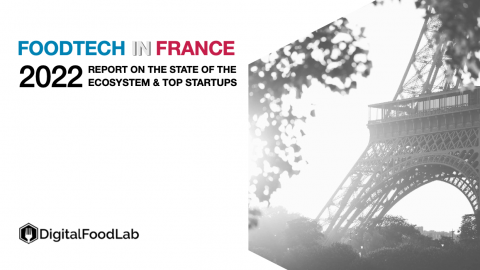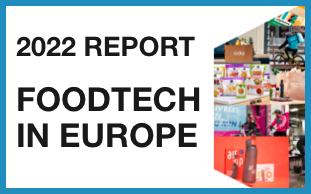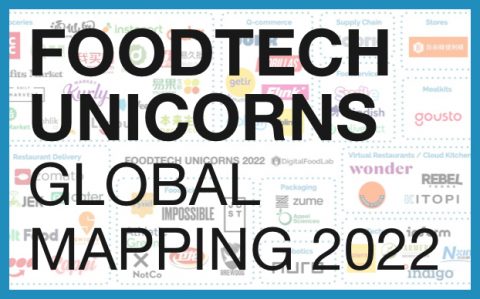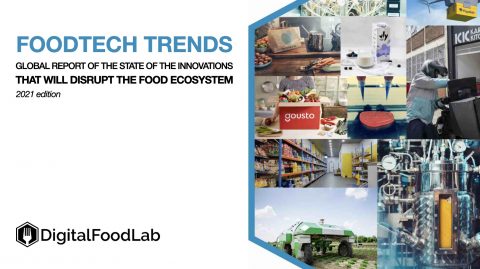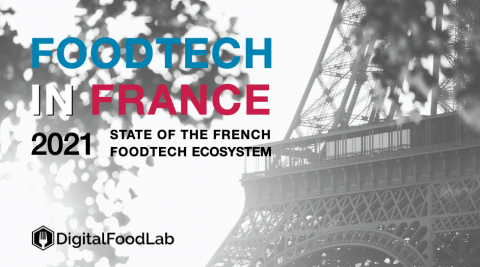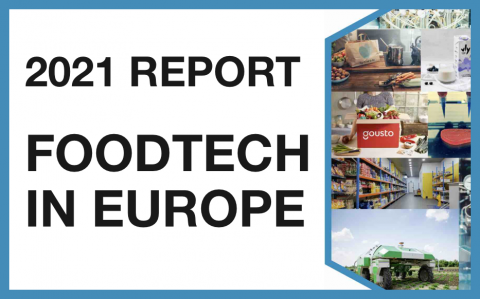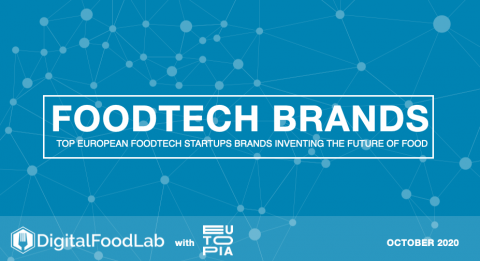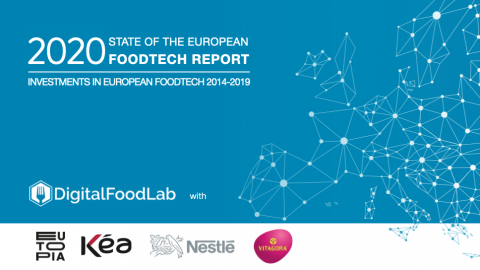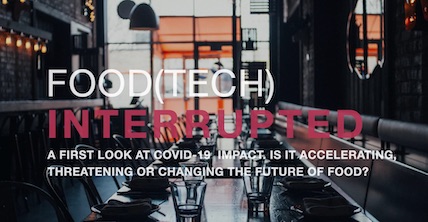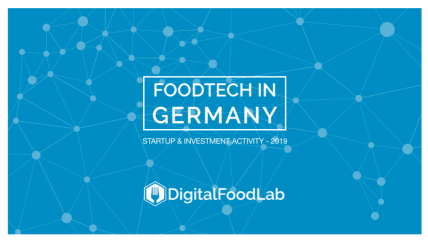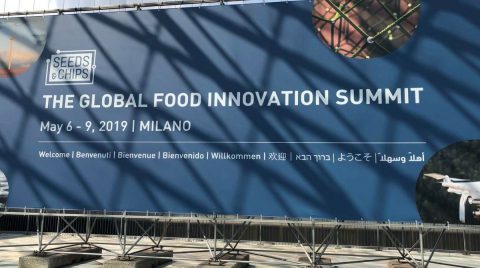This is the sixth edition of our report on trends shaping the future of food. Each year, we gather all our knowledge on innovation all along the food value chain, from seeds to food products to grocery stores to health.
Compared to last year’s edition, even if we added new trends that emerged during the year, the global evolution is less dramatic than it was previously. This is a visible consequence of the current lack of appetite of investors (and somewhat of large companies) to invest in long-term and unproven trends.
French FoodTech startups raised €260M in 2024 (up to Q3) and we project they will raise about €350M by the end of the year. That would be 51% less than in 2023 and 68% less than in 2022 when the ecosystem reached its peak.
Global FoodTech investments – 2024
FoodTech startups raised $15.1B in 2023, 48% less than in 2022 and an impressive 72% decrease from the highs of 2021. However, for the first half of 2024, FoodTech startups have already raised $7.9B, showing the first hint of a bounce back.
European FoodTech startups raised €4.3B in 2023, a 35% decrease from 2022, and 56% from 2021 when investments reached their peak.
If investments are declining in Europe, they are much less affected than in other regions. Global investments decreased by almost 56% between 2022 and 2023. As a consequence, Europe’s FoodTech weight increased. Now, Europe accounts for 32% of worldwide FoodTech investments, up from only 14% in 2020.
There are now 59 FoodTech unicorns, down from 62 last year. Even so, considering the context(the global amount of funding for foodtech startups decreased by almost 60% between 2021 and 2023), knowing that only five startups had their valuation decrease below the $1B threshold is almost surprising. Even better, three new unicorns (Zepto, Restaurant365, eFishery) appeared in 2023, and one (Inari) in the first quarter of 2024.
This is the fourth edition of our report on trends shaping the future of food. Each year, we gather all our knowledge on innovation all along the food supply chain, from seeds to food products to grocery stores to health.
Compared to last year, the context couldn’t be more different. Investments in FoodTech decreased significantly in 2022 and kept declining even more sharply in the first half of 2023. We have identified 62 FoodTech unicorns, with 11 new companies in 2022 and one for the first half of 2023.
After a boom year, FoodTech investments decreased by 36% between 2021 and 2022. Still, €5.9B were invested in European FoodTech startups in 2022, almost twice as much as in 2019 and 2020.
In 2021, French FoodTech startups raised €875M, 40% more than in 2020, which was already an extraordinary year. In the first half of 2022, despite strong headwinds and a global decrease in tech investments, investments are well-oriented.
After a year of stagnation, FoodTech is booming in Europe, in all of its categories (from the future of agriculture to future food products to delivery) and also in most regions. Investments reached €9.5B in European FoodTech startups in 2021. That is 3 times more than the previous year.
This is the fourth year that we map FoodTech unicorns. As this year breaks all the records in terms of the number of startups going over the symbolic valuation of $1B, we decided to dedicate a full report to this very specific set of startups. Indeed, if most entrepreneurs want to create “billion-dollar companies”, how many reach that goal in FoodTech? At least, we can provide a quick answer to this: there are currently 55 FoodTech unicorns.
DigitalFoodLab is happy to share with you the new edition of its yearly report on FoodTech Trends. Each year, we gather all our knowledge on this passioning ecosystem and try to make sense of it into an analysis of what is happening and what will happen next. From our analysis and DigitalFoodLab’s database, we have identified 23 FoodTech trends and have grouped them into five “mega trends” that make it easier to understand the forces shaping this ecosystem
State of the French FoodTech in 2021
In 2020, French FoodTech startups raised €606M. This is 50% more than in 2019. Growing in such a context was a feat.
However, this growth was not perfect. First, it doesn’t seem to be sustained. For the first half of 2021, French FoodTech startups have only raised €155M, and we project a total amount of 300M for the whole year.
State of the European FoodTech in 2021
In 2020, European FoodTech startups raised €2.7B, the same amount as 2019. Maintaining such a high level of investments is good news in such a complicated year.
Despite the pandemic, the total amount invested in FoodTech startups globally has risen sharply. Hence, the share of the European FoodTech ecosystem dropped to a mere 12%.
Direct-To-Consumer Food Brands have made waves in the last couple of years with numerous investments and acquisitions from major corporations (Olly and Graze bought by Unilever, Foodspring by Mars). After the lockdown and the massive change in consumer habits it created, incumbent leaders are looking more than ever to transform their brands into DTC and e-commerce operations.
FoodTech in Europe (English and French)
Data on the investments in European FoodTech startups between 2014 and 2019 with category, investment type, geographic insights and M&A activity. You will find an analysis of the number of investments and the total amount invested, the most important funding rounds and a study country by country of operating startups and funding rounds.
This report is our take on the unprecedented COVID-19 crisis and its impact on the FoodTech ecosystem. Depending on their product or service, startups can be either affected or a solution to the current situation.
We have the tendency to sum up Germany’s FoodTech to Delivery Hero, Hello Fresh and sometimes Marley Spoon. Three startups that have been met with success mostly outside of Germany (in Asia and South America for Delivery Hero, in the US for Hello Fresh and in Australia for Marley Spoon). Hence, it is possible to be quite sceptical about Germany’s ecosystem. However, in this report we were wondering how such world leaders can have been built there and if Germans had a magic equation to build FoodTech Unicorns that could be replicated in other European countries.
This document is our take on our visit on Seeds&Chips 2019. Being there last year helps to draw a comparison and to see evolutions in the ecosystem. This document is a “spot” review about the event, the startups we met there and the conferences we assisted. Even if not exhaustive, it will give you all the facts you need to can get about the event without getting there.
Indian FoodTech startups have seen an increase in investments in 2017 ($4.8B, from $288M in 2016) while the number of deals is constant (24 in 2017, from 24 in 2017). The Indian ecosystem is at its beginning and promises greats surprises. However, these key figures have to be analysed and nuanced. Indeed, India counts four big players, Flipkart, Swiggy, Big Basket and Zomato, which represent 93% of the global investments of the country.
Get in Touch
We work with our clients to identify and act on the best Foodtech opportunities
By email
contact@digitalfoodlab.com
Our office
14 avenue de l’Opéra, 75001 Paris, France





